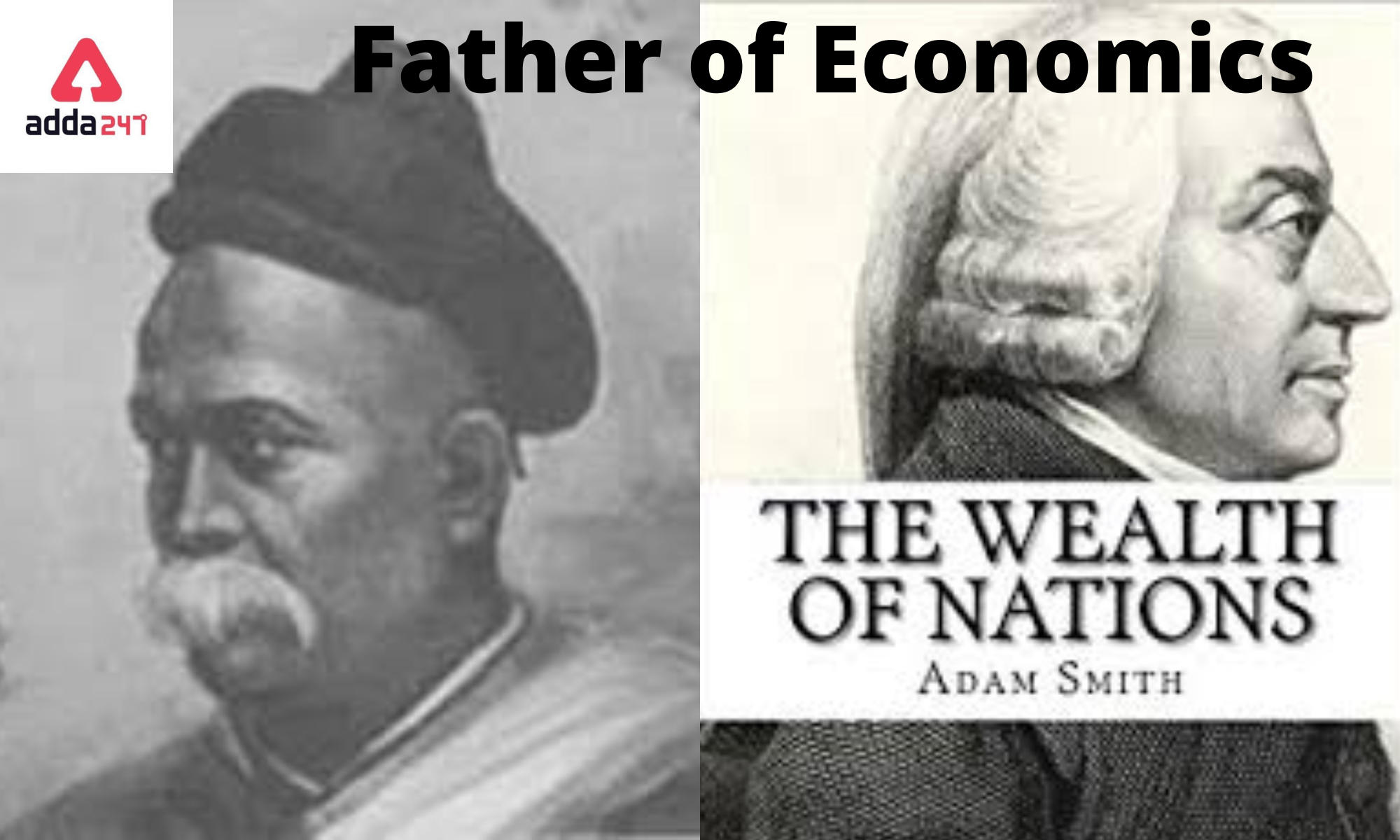Father of Economics in World
Adam Smith FRSA was a Scottish economist and philosopher who was a prominent player in the Scottish Enlightenment and a pioneer of political economics. He produced two classic books, The Theory of Moral Sentiments (1759) and An Inquiry into the Nature and Causes of the Wealth of Nations (1776). He was also known as The Father of Economics or The Father of Capitalism (1776). The latter is considered his magnum opus and the first modern work of economics, and is sometimes abbreviated as The Wealth of Nations. Smith introduced his theory of absolute advantage in his book. Smith attended the University of Glasgow and Balliol College, Oxford, where he was among the first students to profit from scholarships established by fellow Scot John Snell. Following his graduation, he gave a series of well-received public lectures at the University of Edinburgh, which led to his collaboration with David Hume during the Scottish Enlightenment. Smith was appointed as a professor of moral philosophy at Glasgow, where he also composed and published The Theory of Moral Sentiments. He eventually got a tutoring job, which allowed him to travel throughout Europe and meet other intellectual giants of the day.
Father of Economics- Adam Smith’s Life
Adam Smith was born in Kirkcaldy, Scotland, in the county of Fife. Adam Smith’s father, likewise a Scottish Writer to the Signet (senior solicitor), advocate and prosecutor (judge advocate), and comptroller of the customs in Kirkcaldy, was a Scottish writer to the Signet (senior solicitor), advocate and prosecutor (judge advocate). Margaret Douglas, daughter of the landed Robert Douglas of Strathendry, was Smith’s mother. Smith had a close relationship with his mother, who most likely encouraged him to achieve his academic goals. From 1729 to 1737, he studied Latin, mathematics, history, and writing at Kirkcaldy’s Burgh School.
When Smith was 14, he enrolled at the University of Glasgow and studied moral philosophy under Francis Hutcheson. He was the graduate scholar granted at the Snell Exhibition in 1740 to pursue postgraduate studies at Balliol College, Oxford. The teaching at Glasgow, according to Adam Smith, was significantly superior to that at Oxford, which he found intellectually suffocating. Smith began giving public lectures at the University of Edinburgh in 1748, under the patronage of Lord Kames and funded by the Philosophical Society of Edinburgh. His lecture topics covered rhetoric and belles-lettres, as well as the evolution of extravagance later on. He originally explained his economic philosophy of “the obvious and simple system of natural liberty” on this latter topic. Despite the fact that Smith was not a natural public speaker, his lectures were well received.
Smith died on July 17, 1790, in the northern wing of Panmure House in Edinburgh, following a long illness. His remains were laid to rest in the Canongate Kirkyard. Smith expressed regret on his deathbed that he had not accomplished more.
Father of Economics- Adam Smith’s Work
The Theory of Moral Sentiments of Adam Smith
The Theory of Moral Sentiments, Smith’s first publication, was published in 1759. It serves as a psychological underpinning for The Wealth of Nations, being didactic, exhortative, and analytic at times. Smith outlined the principles of “human nature” in it, which he, along with Hume and other important philosophers of the day, saw as a universal and unchanging datum from which social structures and behaviour could be drawn.
Travels on the Continent
The Theory quickly gained Smith widespread acclaim, attracting the attention of Charles Townshend, himself an amateur economist with a good wit but less of a statesman, who would go on to become the chancellor of the Exchequer, responsible for the taxation measures that eventually sparked the American Revolution. Townshend had lately married and was looking for a teacher for the young duke of Buccleuch, his stepson and ward. He approached Smith to take the charge, influenced by Hume’s strong recommendations and his own enthusiasm for The Theory of Moral Sentiments.
The Wealth of Nations
The Wealth of Nations, despite its reputation as the first important work in political economy, is actually a continuation of the philosophical concept initiated in The Theory of Moral Sentiments. The ultimate problem that Smith addresses is how the internal conflict between the desires and the “impartial spectator”—explained in Moral Sentiments in aspects of the single individual—works its effects in the larger arena of history, both in terms of the long-term advancement of mankind and in terms of the immediate characteristics of the stage of history typical of Smith’s own time.
Society and the Invisible hand
Although the theory of historical evolution is possibly the work’s unifying notion, it is subjugated within the work to a thorough analysis of how the “invisible hand” acts inside the commercial, or last, stage of society. The first is how a system of absolute liberty, acting within the bounds of human nature and rationally designed institutions, can produce an ordered society. The question, which had already been well-explained by previous writers, required both an explanation of the underlying orderliness in commodity pricing and an explanation of the “laws” that governed the distribution of the nation’s entire riches among the three major claimant classes—labourers, landlords, and manufacturers.
Father of Economics- In India
Shri Mahadev Govind Ranade
Shri Mahadev Govind Ranade was an author, judge, and social reformer from India. He was one of India’s Citpavan Brahmans of Maharashtra who worked as a judge at the Bombay High Court and was an active participant in social and economic reform movements. He was born on January 18, 1842, in Niphad, Poona (now Pune). He attended a Marathi school in Kolhapur before switching to an English medium school and earning his B.A. and LLB degrees from Elphinstone College in 1862 and 1864, respectively. He was one of the Indian National Congress’s founding members. For pressing the British government to undertake industrialisation and state welfare programmes, Ranade has been dubbed the Father of Indian Economics. He was previously a member of the Prarthana Samaj, which attempted to alter orthodox Hinduism’s social norms. He formed the Indian National Social Conference in 1887 and consistently expressed his ideas on social and economic reform at the Indian National Social Conference’s yearly meetings. Ranade influenced many Indian social reformers, including educator and legislator Gopal Krishna Gokhale. He also continued Ranade’s reform activities after his death.









 BTEUP Result 2025 Out at bteup.ac.in, Do...
BTEUP Result 2025 Out at bteup.ac.in, Do...
 SGBAU Result 2025 Out, Check Summer Seme...
SGBAU Result 2025 Out, Check Summer Seme...
 How To Prepare for CUET Accountancy Exam...
How To Prepare for CUET Accountancy Exam...









